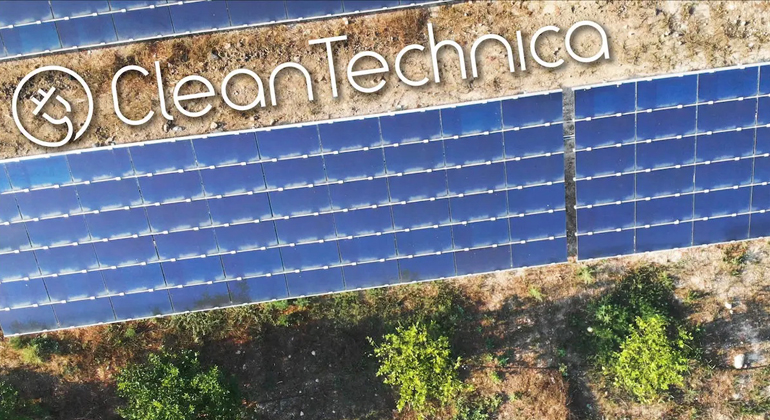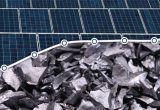Credit Suisse Predicts Renewable Energy That Is “Too Cheap To Meter” By 2025
Credit Suisse says the Inflation Reduction Act will have such a tremendous impact on renewable energy that the US may see the levelized cost of electricity from renewable sources fall to less than 1 cent per kWh hour by 2025 after factoring in all tax and production credits. Now, before we get all gaga over this news, a couple of important caveats are in order.
First, Credit Suisse is having some problems lately, including a possible criminal investigation in America and probe by the US Congress, according to Bloomberg News (paywall). Second, although this story is all over Twitter and has been picked up by The Atlantic, no one has provided an actual link to the Credit Suisse report. A diligent Google search by yours truly failed to discover one. But Robinson Meyer of The Atlantic seems to have read it and here’s what he has to say.
“Late last month, analysts at the investment bank Credit Suisse published a research note about America’s new climate law that went nearly unnoticed. The Inflation Reduction Act, the bank argued, is even more important than has been recognized so far: The IRA will ‘will have a profound effect across industries in the next decade and beyond’ and could ultimately shape the direction of the American economy, the bank said. The report shows how even after the bonanza of climate-bill coverage earlier this year, we’re still only beginning to understand how the law works and what it might mean for the economy.
“The report made a few broad points in particular that are worth attending to. First, the IRA might spend twice as much as Congress thinks. Many of the IRA’s most important provisions, such as its incentives for electric vehicles and zero-carbon electricity, are ‘uncapped’ tax credits. That means that as long as you meet their terms, the government will award them. There’s no budget or limit written into the law that restricts how much the government can spend. The widely cited figure for how much the IRA will spend to fight climate change — $374 billion — is in large part determined by the Congressional Budget Office’s estimate of how much those tax credits will get used.
“But that estimate is wrong, the bank claims. In fact, so many people and businesses will use those tax credits that the IRA’s total spending is likely to be more than $800 billion, double what the CBO projects. And because federal spending tends to catalyze private investment, that could send total climate spending across the economy to roughly $1.7 trillion over the next 10 years. That’s significantly more money flowing into green-energy industries than the CBO projected, though it’s unclear if that additional money will lead to more carbon reductions than earlier analyses have projected.
“Second, the U.S. is ‘poised to become the world’s leading energy provider,’ according to the bank. America is already the world’s largest producer of oil and natural gas. The IRA could further enhance its advantage in all forms of energy production, giving it a ‘competitive advantage in low-cost clean electricity and hydrogen production, infrastructure, geologic storage, and human capital,’ the report states. By 2029, U.S. solar and wind could be the cheapest in the world at less than $5 per megawatt-hour, the bank projects. It will also become competitive in hydrogen, carbon capture and storage, and wind turbines.
Credit Suisse also thought about what might happen if reactionaries and fossil fuel apologists win control of the White House or Congress. They don’t think there’s much of a chance the IRA would be repealed because “Republican-leaning states are likely to see the most investment, job, and economic benefits from the IRA.” That seems like specious reasoning, since people vote against their own best interests all the time.
If there is a stumbling block ahead for the IRA, it is building out America’s energy infrastructure. Powerful business groups are already lobbying to revise the most transmission-friendly sections of the IRA, Credit Suisse says.
The Opportunity Is Huge
Meyer writes that clean energy is now the safe, smart, government-backed bet for conservative investors. It’s really a shocking reversal of the past 40 years. It is such a change that it hasn’t yet been metabolized by the world of people involved in the issue. Then he offers some predictions of his own.
1. The number of Americans working in a climate-relevant industry is going to explode. It is going to undergo what you might call a techification. The opportunity will be too large, the money too persuasive, the problems too intriguing.
2. Managing climate change is a legitimately difficult technical and cultural problem — it’s going to require as many attentive and enthusiastic brains as possible. If you don’t yet work in the industry, but have always cared about climate change as an issue, this is your moment to get involved. These companies are going to need engineers, programmers, accountants, marketers, HR staff, general counsels — there is space for everyone now.
“The fight against climate change is going to change more in the next four years than it has in the past 40. The great story of our lives is just beginning. Welcome aboard,” he concludes.








